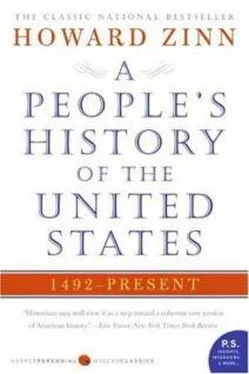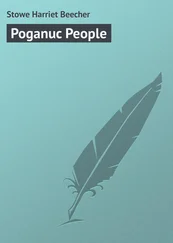Howard Zinn - A People
Здесь есть возможность читать онлайн «Howard Zinn - A People» весь текст электронной книги совершенно бесплатно (целиком полную версию без сокращений). В некоторых случаях можно слушать аудио, скачать через торрент в формате fb2 и присутствует краткое содержание. Издательство: Harper-Collins, Жанр: Фэнтези, на английском языке. Описание произведения, (предисловие) а так же отзывы посетителей доступны на портале библиотеки ЛибКат.
- Название:A People
- Автор:
- Издательство:Harper-Collins
- Жанр:
- Год:неизвестен
- ISBN:нет данных
- Рейтинг книги:4 / 5. Голосов: 1
-
Избранное:Добавить в избранное
- Отзывы:
-
Ваша оценка:
- 80
- 1
- 2
- 3
- 4
- 5
A People: краткое содержание, описание и аннотация
Предлагаем к чтению аннотацию, описание, краткое содержание или предисловие (зависит от того, что написал сам автор книги «A People»). Если вы не нашли необходимую информацию о книге — напишите в комментариях, мы постараемся отыскать её.
A People — читать онлайн бесплатно полную книгу (весь текст) целиком
Ниже представлен текст книги, разбитый по страницам. Система сохранения места последней прочитанной страницы, позволяет с удобством читать онлайн бесплатно книгу «A People», без необходимости каждый раз заново искать на чём Вы остановились. Поставьте закладку, и сможете в любой момент перейти на страницу, на которой закончили чтение.
Интервал:
Закладка:
…driven through insufferable hunger to eat those things which nature most abhorred, the flesh and excrements of man as well of our own nation as of an Indian, digged by some out of his grave after he had laid buried there days and wholly devoured him; others, envying the better state of body of any whom hunger has not yet so much wasted as their own, lay wait and threatened to kill and eat them; one among them slew his wife as she slept in his bosom, cut her in pieces, salted her and fed upon her till he had clean devoured all parts saving her head…
A petition by thirty colonists to the House of Burgesses, complaining against the twelve-year governorship of Sir Thomas Smith, said:
In those 12 years of Sir Thomas Smith, his government, we aver that the colony for the most part remained in great want and misery under most severe and cruel laws… The allowance in those times for a man was only eight ounces of meale and half a pint of peas for a day… mouldy, rotten, full of cobwebs and maggots, loathsome to man and not fit for beasts, which forced many to flee for relief to the savage enemy, who being taken again were put to sundry deaths as by hanging, shooting and breaking upon the wheel… of whom one for stealing two or three pints of oatmeal had a bodkin thrust through his tongue and was tied with a chain to a tree until he starved…
The Virginians needed labor, to grow corn for subsistence, to grow tobacco for export. They had just figured out how to grow tobacco, and in 1617 they sent off the first cargo to England. Finding that, like all pleasurable drugs tainted with moral disapproval, it brought a high price, the planters, despite their high religious talk, were not going to ask questions about something so profitable.
They couldn't force the Indians to work for them, as Columbus had done. They were outnumbered, and while, with superior firearms, they could massacre Indians, they would face massacre in return. They could not capture them and keep them enslaved; the Indians were tough, resourceful, defiant, and at home in these woods, as the transplanted Englishmen were not.
White servants had not yet been brought over in sufficient quantity. Besides, they did not come out of slavery, and did not have to do more than contract their labor for a few years to get their passage and a start in the New World. As for the free white settlers, many of them were skilled craftsmen, or even men of leisure back in England, who were so little inclined to work the land that John Smith, in those early years, had to declare a kind of martial law, organize them into work gangs, and force them into the fields for survival.
There may have been a kind of frustrated rage at their own ineptitude, at the Indian superiority at taking care of themselves, that made the Virginians especially ready to become the masters of slaves. Edmund Morgan imagines their mood as he writes in his book American Slavery, American Freedom :
If you were a colonist, you knew that your technology was superior to the Indians'. You knew that you were civilized, and they were savages… But your superior technology had proved insufficient to extract anything. The Indians, keeping to themselves, laughed at your superior methods and lived from the land more abundantly and with less labor than you did… And when your own people started deserting in order to live with them, it was too much… So you killed the Indians, tortured them, burned their villages, burned their cornfields. It proved your superiority, in spite of your failures. And you gave similar treatment to any of your own people who succumbed to their savage ways of life. But you still did not grow much corn…
Black slaves were the answer. And it was natural to consider imported blacks as slaves, even if the institution of slavery would not be regularized and legalized for several decades. Because, by 1619, a million blacks had already been brought from Africa to South America and the Caribbean, to the Portuguese and Spanish colonies, to work as slaves. Fifty years before Columbus, the Portuguese took ten African blacks to Lisbon — this was the start of a regular trade in slaves. African blacks had been stamped as slave labor for a hundred years. So it would have been strange if those twenty blacks, forcibly transported to Jamestown, and sold as objects to settlers anxious for a steadfast source of labor, were considered as anything but slaves.
Their helplessness made enslavement easier. The Indians were on their own land. The whites were in their own European culture. The blacks had been torn from their land and culture, forced into a situation where the heritage of language, dress, custom, family relations, was bit by bit obliterated except for remnants that blacks could hold on to by sheer, extraordinary persistence.
Was their culture inferior-and so subject to easy destruction? Inferior in military capability, yes — vulnerable to whites with guns and ships. But in no other way-except that cultures that are different are often taken as inferior, especially when such a judgment is practical and profitable. Even militarily, while the Westerners could secure forts on the African coast, they were unable to subdue the interior and had to come to terms with its chiefs.
The African civilization was as advanced in its own way as that of Europe. In certain ways, it was more admirable; but it also included cruelties, hierarchical privilege, and the readiness to sacrifice human lives for religion or profit. It was a civilization of 100 million people, using iron implements and skilled in farming. It had large urban centers and remarkable achievements in weaving, ceramics, sculpture.
European travelers in the sixteenth century were impressed with the African kingdoms of Timbuktu and Mali, already stable and organized at a time when European states were just beginning to develop into the modern nation. In 1563, Ramusio, secretary to the rulers in Venice, wrote to the Italian merchants: "Let them go and do business with the King of Timbuktu and Mali and there is no doubt that they will be well-received there with their ships and their goods and treated well, and granted the favours that they ask…"
A Dutch report, around 1602, on the West African kingdom of Benin, said: "The Towne seemeth to be very great, when you enter it. You go into a great broad street, not paved, which seemeth to be seven or eight times broader than the Warmoes Street in Amsterdam…The Houses in this Towne stand in good order, one close and even with the other, as the Houses in Holland stand."
The inhabitants of the Guinea Coast were described by one traveler around 1680 as "very civil and good-natured people, easy to be dealt with, condescending to what Europeans require of them in a civil way, and very ready to return double the presents we make them."
Africa had a kind of feudalism, like Europe based on agriculture, and with hierarchies of lords and vassals. But African feudalism did not come, as did Europe's, out of the slave societies of Greece and Rome, which had destroyed ancient tribal life. In Africa, tribal life was still powerful, and some of its better features-a communal spirit, more kindness in law and punishment-still existed. And because the lords did not have the weapons that European lords had, they could not command obedience as easily.
In his book The African Slave Trade , Basil Davidson contrasts law in the Congo in the early sixteenth century with law in Portugal and England. In those European countries, where the idea of private property was becoming powerful, theft was punished brutally. In England, even as late as 1740, a child could be hanged for stealing a rag of cotton. But in the Congo, communal life persisted, the idea of private property was a strange one, and thefts were punished with fines or various degrees of servitude. A Congolese leader, told of the Portuguese legal codes, asked a Portuguese once, teasingly: "What is the penalty in Portugal for anyone who puts his feet on the ground?"
Читать дальшеИнтервал:
Закладка:
Похожие книги на «A People»
Представляем Вашему вниманию похожие книги на «A People» списком для выбора. Мы отобрали схожую по названию и смыслу литературу в надежде предоставить читателям больше вариантов отыскать новые, интересные, ещё непрочитанные произведения.
Обсуждение, отзывы о книге «A People» и просто собственные мнения читателей. Оставьте ваши комментарии, напишите, что Вы думаете о произведении, его смысле или главных героях. Укажите что конкретно понравилось, а что нет, и почему Вы так считаете.












